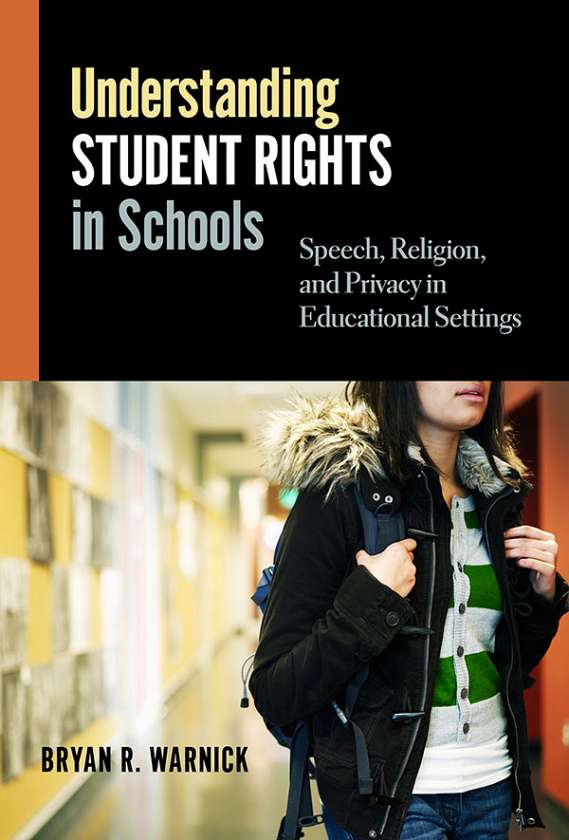Professors: Request an Exam Copy
Print copies available for US orders only. For orders outside the US, see our international distributors.
Publication Date: December 23, 2012
Pages: 208

What rights should students expect to exercise in public schools? Should Bible study meetings be allowed during free periods? Should students be allowed to wear T-shirts that exhort taking drugs or committing violent acts? Should students be required to participate in drug testing? In this concisely argued book, Bryan Warnick examines how student rights in three areas—free speech, privacy, and religious expression—have been addressed in policy, ethics, and the law.
Starting with the Tinker decision, a landmark 1969 U.S. Supreme Court ruling which declared that students in public schools had constitutional rights that must be understood “in light of special characteristics of the school environment,” Warnick develops education criteria that schools can use when facing difficult questions of student rights. Both probing and practical, Warnick explains how student rights can be properly understood and protected.
Important reading for anyone concerned with the ethical dimensions of schooling, this book offers:
Bryan R. Warnick is an associate professor of philosophy of education in the School of Educational Policy and Leadership at The Ohio State University.
“A brilliant and timely book. At a time when students' rights are poorly understood and commonly violated, Warnick offers a compelling and lucid argument for their importance in light of the purposes of schooling.”
—Eamonn K. Callan, Stanford University
“Should be of considerable interest to scholars and teachers across the broad field of education.”
—Kenneth Howe, School of Education, University of Colorado, Boulder
2013 AESA Critics’ Choice Award
2013 District Administration's Noteworthy Book for District Leaders
Professors: Request an Exam Copy
Print copies available for US orders only. For orders outside the US, see our international distributors.